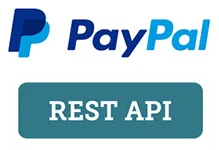I’m trying to use PayPal API REST from NodeJS, so i have to make async calls with Axios, but i’m doing this on separarted classes, i have two classes:
const axios = require("axios");
/**PayPal main class, this class will setup PayPal credentials when instance */
class PayPal {
constructor() {
return new Promise(async (resolve, reject) => {
await this.setupEnvironment();
resolve();
});
}
setupEnvironment = async () => {
// Sets base URL to send requests
this.setAPIDomain();
// Sets PayPal endpoints
this.setPayPalEndpoints();
// Sets API Keys
await this.setAPIKeys();
}
setAPIKeys = async () => {
const paypal_credentials = this.getPayPalCredetials();
const { client_id, client_secret } = paypal_credentials;
try {
const response = await axios({
method: "post",
url: this.endpoints.get_access_token,
data: "grant_type=client_credentials",
headers: {
"Accept-Language": "en_US",
"Accept": "application/json"
},
auth: {
username: client_id,
password: client_secret
},
});
this.access_token = response.data.access_token;
} catch (error) {
console.log(error.response.data);
throw new Error(error.response.data.error_description);
}
}
}
class Customer extends PayPal() {
constructor() {
super();
// Customer class do some others actions
}
}
$paypal_gateway = new Customer();
As you can see, in the PayPal class is a method (setAPIKeys) who sends a request to PayPal to generate mi access token, if i put a console.log(this.access_token) i’m getting my access token, but it only happens if i put it inside the setAPIKeys method (I’m omiting some methods of this class here).
If i put console.log($paypal_gateway.access_token) i’m getting undefined, and that’s obvious ’cause the PayPal class constructor is returning a promise, but in the Customer class constructor i’m just calling the super() method without an async way, i tried to put "async" on the left of super() but it doesn’t works, i also tried this:
class Customer extends PayPal {
constructor() {
return new Promise(async (resolve, reject) => {
// Call to parent constructor
super();
// Set Customer properties
this.setCustomer();
resolve();
});
}
}
But also doesn’t works, if i put a console.log(this.access_token) under the super() function i’m also getting undefined, so i don’t know what can i do to await this super() constructor, can you help me please?

 Question posted in
Question posted in 

2
Answers
I solve it with help of @sdgluck comment, i avoid the constructor method and implements an async init method:
Hope this help to others, thanks a lot!
The constructor must return an object — specifically an instance of the class it’s defined in. It cannot return a Promise, which is what an async function does. You will have to implement a setup step. You could make an async factory function which instantiates the object and performs all setup steps, and returns the resulting object.
}